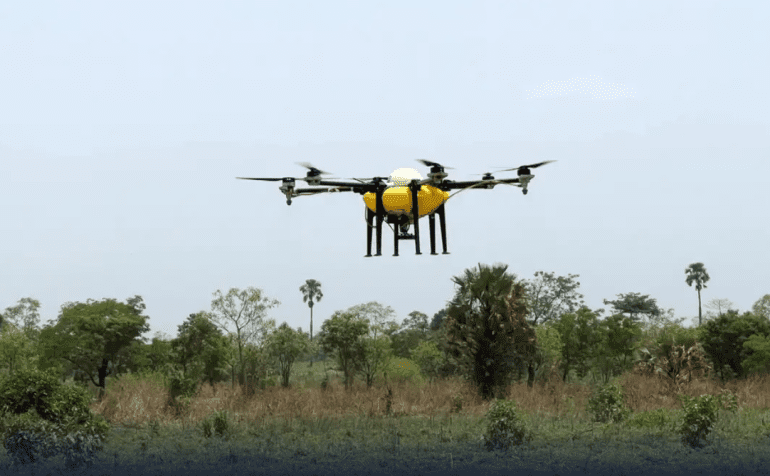- AI integration revolutionizes farming in Ghana’s eastern region.
- Young farmers embrace AI-powered drones for various tasks.
- Experts develop AI tools to detect and address crop diseases early.
- Challenges include irregular rainfall, rising temperatures, and pest outbreaks.
- AI offers hope for securing harvests and enhancing food security.
- Adoption of precision farming is gradual but promising.
Main AI News:
The integration of artificial intelligence (AI) is revolutionizing farming practices in Ghana, particularly in the eastern region, where farmers are combating crop diseases and enhancing yields through innovative technologies. Younger agricultural entrepreneurs are embracing cutting-edge solutions, such as AI-powered drones, for tasks like aerial spraying, irrigation, and land surveying.
In this era of rapid technological advancement, experts are actively engaged in the development and dissemination of AI tools tailored to the agricultural landscape of Ghana. These tools empower farmers to detect and address crop infestations at their nascent stages, enabling proactive measures to curb the spread of diseases.
Across the nation, agricultural productivity faces multifaceted challenges, ranging from erratic rainfall patterns and escalating temperatures to prolonged dry spells and a surge in pestilence and diseases. Amidst these adversities, the application of AI emerges as a beacon of hope for securing bountiful harvests and sustaining food security.
Delia Bedia, a farmer from the Afram Plains District, attests to the efficacy of AI interventions, expressing satisfaction with the outcomes achieved thus far. However, the widespread adoption of AI-supported drones remains a novelty in rural Ghana. Despite the evident benefits of ‘precision farming,’ its proliferation is gradual, albeit promising significant gains in terms of time and cost efficiency, ultimately fortifying the nation’s food security landscape.
Conclusion:
The incorporation of AI technologies into Ghana’s agricultural sector signifies a pivotal shift towards efficiency and sustainability. While challenges persist, the innovative solutions offered by AI hold the promise of mitigating risks and bolstering food security in the long term, presenting lucrative opportunities for stakeholders in the agricultural market.

